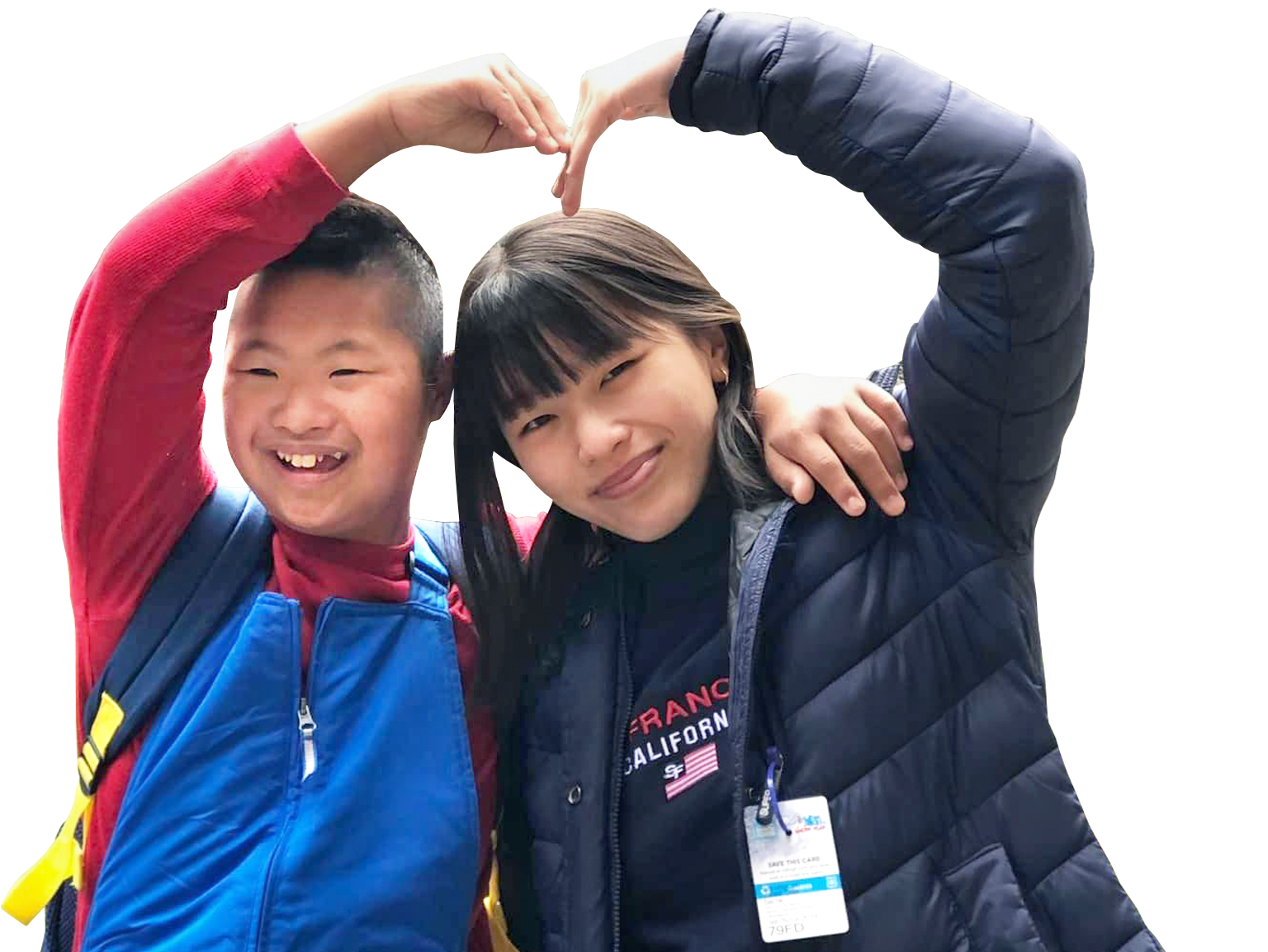By Joanne Su Chan,
Feature Editor
Watching my brother, Nathan, who happens to have Down syndrome, thrive in his classroom alongside same age typical peers brings me great joy. However, I know that for many families the journey to inclusion is a long road full of barriers. All students—regardless of their capabilities—have the right to be in an inclusive academic environment provided they are given the support and services they need to make progress.
As a family, we want Nathan to be seen as an equal and valued member of society.
It has been noticed that inclusion is not in place in many schools and this disproportionately impacts students with disabilities. This is due to the fact that they require more support than a typical student. Although every situation is different, this is an issue that many students with disabilities face as schools would rather segregate the student in the school’s Special Day Class, instead of providing the educational support in a general education classroom.
In school, my brother has the support of a one-on-one aide, inclusion specialist, and special education services that are in place for him to succeed. Outside of school, he has additional therapies, a reading tutor, gymnastics, swimming and drums. People do not see the support that my brother flourishes on. All they see is additional services required.
Students with additional needs like my brother can only show what they are capable of when they have the same educational opportunities as typical students. Rather than saying that my brother does not need speech services to improve his articulation, assist him and celebrate the incredible effort they put in to succeed.
For my family, inclusion is a mindset, a way of living, where everyone accesses the same space, has the same opportunities and a sense of belonging in a diverse community. For the future, we envision Nathan having a meaningful, joyful, healthy, independent and safe life; with opportunities to pursue his dreams.
Inclusion in a general education classroom allows students with disabilities to learn more, develop friendships, practice communication skills and access the same rich curriculum as their peers. Inclusion also exposes their peers to students with different needs. This allows them to build an understanding of humanity, empathy and understand that we all want the same things, which is to have friends, learn, to be seen and heard, be included and have a sense of belonging.
For all these amazing things to happen, you have to start from the beginning. Do not segregate them and isolate them from their community. Provide support, accommodations, help and give every student opportunities despite their circumstances. Most importantly, celebrate them and their accomplishments.
Yes, effort, resources and planning is required towards running these programs. However, districts already steadily work to improve general education classes. The district enforces rules and creates programs that are meant to help improve the learning environments of non-disabled students, such as tutoring and Peer Listeners. If this amount of effort and time is being put towards improving general education programs, the same can be done for the special education program.
On March twenty-first, 3/21, World Down Syndrome Day is celebrated to signify the triplication, also known as trisomy, of the twenty-first chromosome which causes Down syndrome. First officially observed by the United Nations in 2012, it is a day to spread awareness of Down syndrome and help address misconceptions. It is also a day to acknowledge and celebrate the lives and achievements of people with Down syndrome. For me and my family, it is a day to celebrate my brother’s life, his gifts and the joy he brings to the world just by being himself. We are all unique and for my brother, Down syndrome is just one part of him. It does not define him; he is not Down syndrome. He is funny, hard-working and a proud student in his community.
When we know better, we can do better. We are all human and capable of doing amazing things. Support people with disabilities so they can thrive in their communities by accepting who they are as a human, disability or not. Welcome and include them. We all bring different gifts to each other and that’s what makes the world interesting.

